
Most people are convinced that the "complete and balanced" dog foods they see for sale are, indeed, complete and balanced. Some are so convinced these diets are everything the dog needs that they are horrified at the idea of giving the dog any "people food" out of fear it will unbalance the dog's diet. But it is quite implausible that these diets are actually complete and balanced. We know they are deficient in at least one type of nutrient, omega-3 fatty acids.
One large dog food manufacturer, whose name we will not reveal, conducted a very interesting study several years ago. They took a group of puppies and fed them all a commercial "complete and balanced" puppy kibble. One half of the group also got daily fish oil. They were raised in a kennel environment so we know they weren't sneakily eating people food or catching rodents on the side.
Around seven months of age the puppies were given a battery of tests to assess intelligence and learning ability. There was a shocking difference between the puppies fed nothing but supposedly complete kibble and the ones supplemented with omega-3 fatty acids. The ones fed nothing but kibble were hyperactive, learning impaired and somewhat mentally retarded in comparison to the fish oil group. The difference was not minor- it was a huge difference that would easily be noticed in a home setting. The most obvious difference was that the kibble-only group acted like they had some type of ADHD. How many adolescent dogs have you met that act like they have ADHD? We always wonder what they ate as puppies.
The "puppy study" results aren't all that surprising. Omega-3 fatty acids are well-known to be extremely important for health in general, and in particular for brain development and function. Omega-3 fatty acids come in DHA and EPA forms, and DHA is particularly important for brain function.
Ah, you say, but the dog food manufacturers fixed their problem- they added more omega-3 fatty acids to their kibbles. Look at the SmartPuppy kibbles and the other ones announcing they have DHA in them. Yes, a small minority of dog food manufacturers have added more fish oil to their puppy kibbles. Most have not. It is not a required nutrient under AAFCO. And, for even the ones that have added it to their kibble, be wary.
Omega-3 fatty acids are unstable. They break down when exposed to heat, light and oxygen. When you buy a good fish oil, you look for a cold-pressed product that is in a dark bottle and has preferably been refrigerated or is at least fairly recently prepared. What does that have to do with kibble? Well, when they make kibble, they mix all the stuff together at high temperatures, extrude it, and then store it. Often it is kept in hot warehouses, moved around in hot trucks, and stored for fairly extended periods of time before your pet eats it. In other words, exposed to lots of heat, light and oxygen.
Even if the manufacturer did add fish oil, by the time your dog eats the food a considerable proportion of the omega-3 fatty acids have probably broken down. The other problem is that many dog-food manufacturers use cheap flax instead of expensive fish oil as their source of omega-3 fatty acids. Flax is an excellent source of omega-3 fatty acids for horses and other animals that are designed to eat plants. Carnivores like dogs and cats have great difficulty in converting the fats in flax into a useable form. In general, feeding your dog flax is not going to do your dog much good.
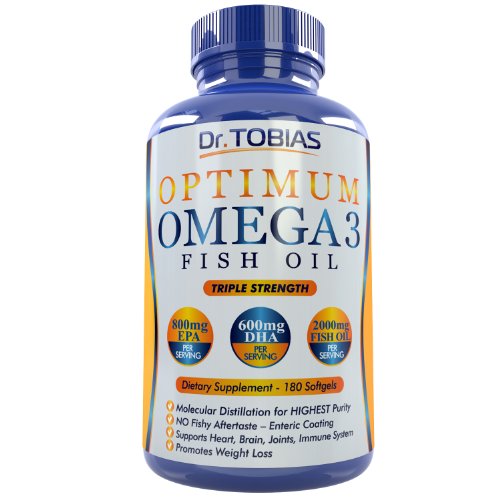 Omega 3 Fish Oil Pills (180 Counts) - Triple Strength Fish Oil Supplement (1,400mg Omega 3 Fatty Acids: 600mg DHA + 800 mg EPA per Serving) - Burpless Capsules with Enteric Coating And Pharmaceutical Grade Essential Fatty Acids - Molecularly Distilled Fish Oil Supplements Including Best Health Bonus (Online Videos With Health-Supporting Exercises)
Omega 3 Fish Oil Pills (180 Counts) - Triple Strength Fish Oil Supplement (1,400mg Omega 3 Fatty Acids: 600mg DHA + 800 mg EPA per Serving) - Burpless Capsules with Enteric Coating And Pharmaceutical Grade Essential Fatty Acids - Molecularly Distilled Fish Oil Supplements Including Best Health Bonus (Online Videos With Health-Supporting Exercises)If you feed a commercial dry dog food, you should automatically assume it is deficient in omega-3 fatty acids and supplement it with fish oil. You can try supplementing with actual fish if you don't like the idea of giving your dog pills. Canned salmon, sardines and mackerel are all affordable ways to supplement the dog's diet. These fish will also increase the protein content of the food, which is a good thing. Most commercial kibbles have insufficient protein to support optimal dog health.
It's hard to calculate a dose to aim for if you're adding fish to the dog's diet. Actually, it's hard to calculate a dose if you are adding fish oil capsules because no one has done studies to establish the optimal dose. We know that doses as high as 1 gram per 10 pounds of dog are very helpful for improving inflammatory conditions such as arthritis. There doesn't seem to be an upper limit to its beneficial effects- it doesn't seem that you can give too much.
As a general rule of thumb, most people are giving one or two 1200-mg capsules to large dogs and less to smaller dogs. You can buy fish oil cheaply in most supermarkets or drug stores.
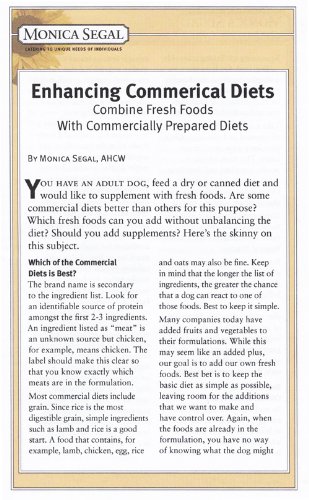 Enhancing Commercial Diets
Enhancing Commercial DietsWe don't really know. The nutritional studies used to establish the AAFCO guidelines are kind of short-term. They only follow dogs for six months, which isn't long enough to reveal nutritional problems. The tests used to establish foods as "complete and balanced" have been very wrong in the past. Perhaps the most commonly-known is the saga of taurine. Cats in particular need to eat taurine, and the short-term tests used to establish cat nutritional needs failed to notice they needed it. Cats only show symptoms of taurine deficiency after some years of failing to get enough.
Anyway, most experts suspect that dog kibbles contain the correct amounts of the important minerals like calcium and zinc. Some experts suspect they are low in many vitamins and micronutrients. Most kibbles are obviously low in protein and fat. If your dog eats nothing but even the cheapest, low-quality kibble he won't develop any overt nutritional deficiency symptoms but he may not be in the best health that he could be. It's the difference between adequate health and optimal health.
Most dog nutrition experts recommend rotating between brands of kibble, in hopes of correcting for micronutrient deficiencies. They also recommend supplementing the diet with fresh "people food" in hopes of adding back the missing vitamins and micronutrients. Topping your dog's dinner with a few leftovers or using fresh foods as treats is highly recommended. Keep in mind that most kibbles provide excessive carbohydrates, so adding more grain or potato to the dog's diet is not a good idea. Adding protein sources like the bits off the chicken carcass no one wants to eat is a great idea. The occasional cooked vegetable will provide nutrients. Don't feed your dog onions, garlic or grapes because they can be toxic. And don't forget the fish oil.
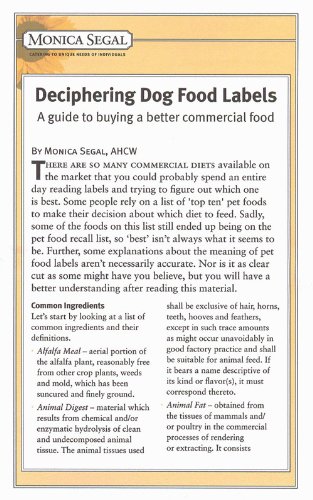 Deciphering Dog Food Labels - a guide to buying a better commercial food
Deciphering Dog Food Labels - a guide to buying a better commercial food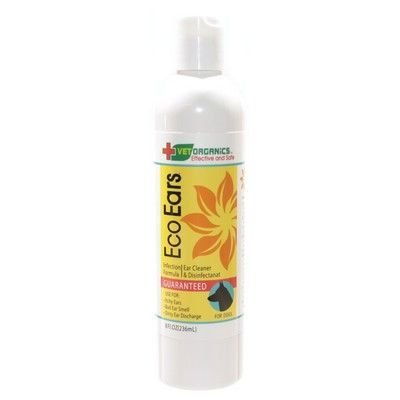 Stinky Dog Ears
My dog Sasha (pictured) has
Stinky Dog Ears
My dog Sasha (pictured) has
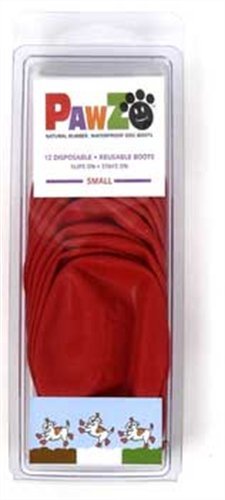 How to Winter Proof Your Dogs Paws
Two Products That Will Do Wonders For Mans Bes
How to Winter Proof Your Dogs Paws
Two Products That Will Do Wonders For Mans Bes
 My Dog Lunges And Barks At Other Dogs
Walking your dog is a nightm
My Dog Lunges And Barks At Other Dogs
Walking your dog is a nightm
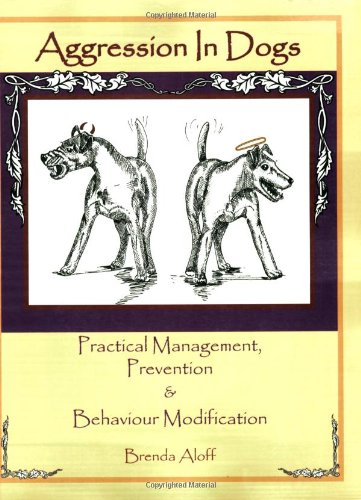 Eight Reasons Why Your Dog Is Aggressive
Dogs have been a man’s
Eight Reasons Why Your Dog Is Aggressive
Dogs have been a man’s
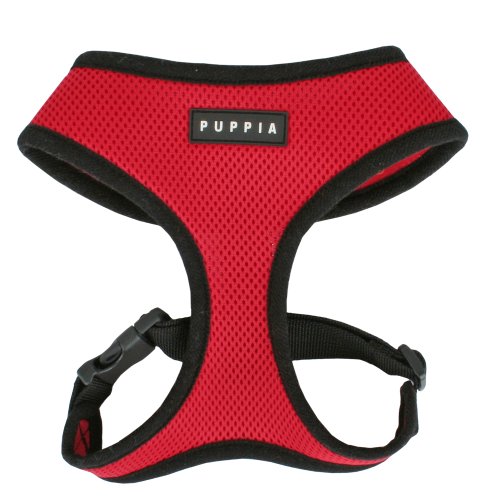 Be Prepared Before Taking Your Dog on Your Next Holiday Road Trip
Planning Your TripIt is exci
Be Prepared Before Taking Your Dog on Your Next Holiday Road Trip
Planning Your TripIt is exci
Copyright © 2005-2016 Pet Information All Rights Reserved
Contact us: www162date@outlook.com